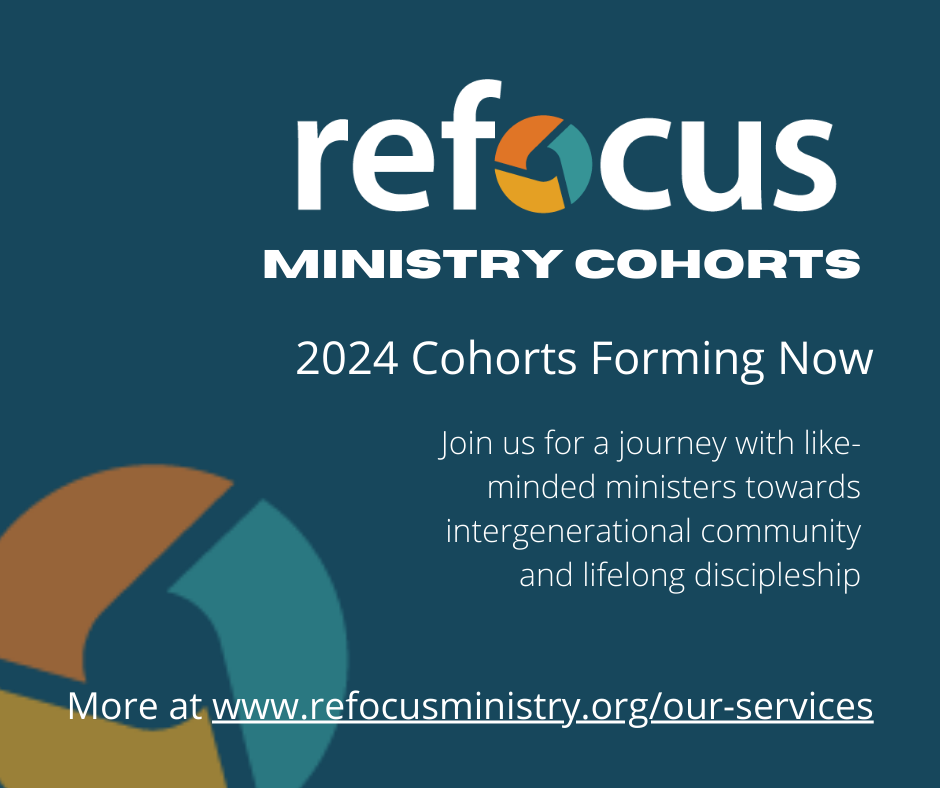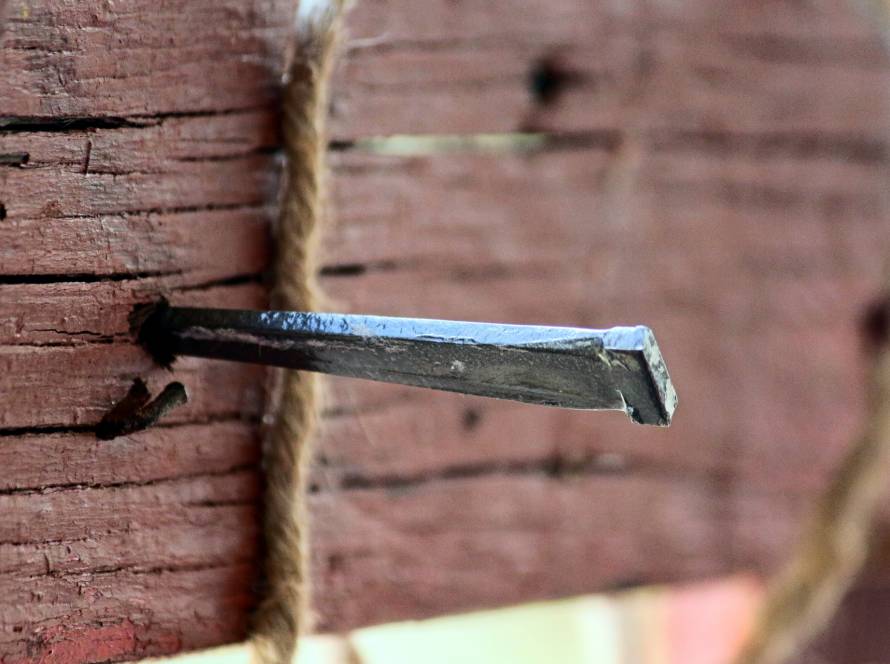Last week, I drove from Kentucky to Ohio for a church conference. No big deal right? Except to get to Ohio, I had to cross over the Ohio River on a bridge that, well, let’s just say it’s a controversial bridge. This particular bridge carries about 180,000 vehicles across it daily which is important to note because, it was designed to carry 80,00.
Here’s the thing: It’s not doing so great. About a decade ago, pieces of the bridge starting breaking apart. There was a huge accident due to the narrow lanes and part of the bridge was burned. For nearly three decades, this bridge gets brought up in Congress as part of necessary infrastructure updates and for nearly three decades, partisan politics have kept anything from being done.
The bridge has become a barrier.
What was intended to serve the community has become a liability. Unless something is done soon, this bridge will not withstand the demands being placed upon it and someone is going to get hur
So why in the world are we still using it? I drove across it just last week, along with thousands of others, crossed that bridge twice in one day, going into Ohio and coming home to Kentucky. Why would I and so many others put ourselves in that danger?
Because, simply put, there is no alternative. The Ohio River lies between Kentucky and Ohio and it must be crossed. To use a different bridge would add an hour to the journey. So, I and all the other drivers choose to use the bridge to save time and follow the most direct route. And, we made it. We got through another day. But the bridge is still falling apart and eventually will not work.
If you haven’t figured out the analogy yet, let me spell it out for you.
In the 1950s and into the 1980s, age-specific ministries in churches grew exponentially. Designed to be a bridge to the younger generations, these ministries took on a culture of their own and soon the church was a series of ministries and programs aimed at certain ages and stages of life. By the 1990s, the existence of age-specific ministries, curriculum, activities, programs, and worship services as the norm became widely accepted.
But something started happening. In the early 2000s we became to observe the departure of a generation of churchgoers from our congregations. By 2010, we recognized a full-fledge departure of rising generations from our faith communities and we were asking “Why, what is going on?” The bridge which had served us so well was showing some cracks.
The bridge had become a barrier.
What was intended to bring us together was actually starting to push apart. We might enter the same building on Sunday, but we all went our separate ways. We heard different sermons, studied different Scriptures, had entirely different social networks, and rarely if ever interacted with anyone outside of our bubble.
Now, blame can’t lie in the bridge alone. It was a good bridge when it was built. But it was built as an addition to the full congregational experience not a replacement for it. Just like the literal bridge between Kentucky and Ohio was built for 80,000 not 180,000, the bridge of age-specific ministries was intended to enhance not replace congregational life.

But over time, the bridge became a hinderance to rather than an enhancement. Sticky Faith from Fuller Youth Institute was one of the earliest research projects that examined why Millennials chose to stay in the faith rather than leave. In 2012, researcher Kara Powell shared, “The closest our research has come to that definitive silver bullet is this sticky finding: High school and college students who experience more intergenerational worship tend to have higher faith maturity” (Source).
Since that time, we have seen a continued decline in attendance from the rising generations and a continued reliance on age-specific curriculum and programs to the exclusion of intentionally intergenerational opportunities and approaches to worship and ministry. What was supposed to connect us actually kept us apart. The bridge is no longer serving its intended purpose and it’s actually posing a danger to future travelers on the journey.
I wish that I could say I am being hyperbolic, exaggerating the danger posed by continuing to use an old bridge in a new landscape, but I don’t think that I am. We are in need of connection with each other, the kind of connection that leads to relationship, and the kind of relationships that lead to generational discipleship and lifelong faith formation. And it might mean, we have to take a detour, a longer route, one that is messier and takes more time and isn’t what we are used to. But, in the long run, one that leads to community and connection.
The bridge I drove over the other day is still technically working. But it is in desperate need of attention and repair. I would say the same of the church, on many levels, but especially in the area of discipleship and community. We need bridges, to be sure, but the kinds of bridges that do what they are intended to do.
It’s time to connect. To identify true bridges. To examine real barriers. To come together. To grow as one.
Fall 2024 ReFocus Cohort Forming Now!

We are ready to put together our ReFocus Ministry Cohort for Fall 2024 and would love to have you be a part of this transformational experience!
*Who should join?* – ReFocus cohorts are appropriate for anyone serving in a ministerial context. The 12-week program includes weekly Zoom meetings, resources and materials for study, access to the Connect Generations Ministry assessment, and ongoing coaching for the participant and/or their church.
*Why should you join?* – If we keep doing what we’ve always done, we will always get what we’ve always got. If you are ready to think beyond the “church growth box” and move into the “make lifelong disciples” culture, this is the place for you. It’s not church as usual – it’s understanding the culture we are in, the practice of spiritual formation, and the formation of faith across generations rather than in siloed ministry areas.
*How to I join?* – Simply fill out the interest form linked here and we will reach out with more details and information on who to join this cohort!

About the Founder of ReFocus Ministry
Christina Embree is the founder and director of ReFocus Ministry. She holds a masters in ministry focused on Children, Youth, and Family Ministry and a doctorate in spiritual formation with a focus on age segregation and intergenerational ministry.
In addition to coaching churches of multiple denominations and traditions all around the globe, Christina serves as the Minister of Generational Discipleship for the Great Lakes Conference of the Brethren in Christ and as Next Gen pastor at Open Door Church in Lexington, Kentucky.
She is widely recognized as a speaker and author in the areas of generational discipleship, intergenerational ministry, and family ministry. As the mother of three children, she is familiar with the challenges of faith at home and pastoral ministry. She along with her husband Luke share a love for the church, their community, and the global work of peace and restoration through Jesus.
Interested in having Christina visit your church, speak at your conference, or coach your team?
Christina speaks on a wide range of topics related to children, youth, and family ministry with a unique focus on connecting generations for discipleship within your church. Her personalized approach allows you to pinpoint the needs of your community and gain the insight that you are looking for. Whether this is a volunteer team training and pastoral staff meeting or a ministerial conference, her experience and knowledge will help you determine the next step forward in creating lifelong disciples.


